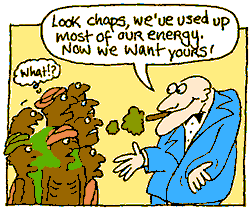[ad_1]
Writer and Web page data
- This web page: https://www.globalissues.org/article/231/climate-justice-and-equity.
- To print all data (e.g. expanded aspect notes, reveals different hyperlinks), use the print model:
On this web page:
- Why Don’t Poor International locations Have Emission Discount Targets?
- Widespread aim however totally different obligations
- What would possibly a justifiable share of emissions seem like?
- Local weather negotiations ignoring social justice and fairness
- Wealthy Nations Have
Outsourced
Their Carbon Emissions - Politics and Pursuits
- Extra Data
Why Don’t Poor International locations Have Emission Discount Targets?
International warming is primarily a results of the industrialization and motorization ranges within the OECD nations, on whom the principle onus for mitigation presently lies.
It has lengthy been accepted that these industrialized nations which were industrializing for the reason that Industrial Revolution bear extra duty for human-induced local weather change. It’s because greenhouse gases can stay within the ambiance for many years.
With a little bit of historic context then, claims of fairness and equity tackle a distinct that means than merely suggesting all nations must be lowering emissions by the identical quantity. However some industrialized nations seem to reject or ignore this premise.
Widespread aim however totally different obligations
the US complained concerning the obvious unfairness within the Kyoto Protocol, which doesn’t commit creating nations to the identical ranges of reductions in international warming pollution.
Nevertheless, what Washington has not point out is that the creating nations are NOT those who’ve precipitated the air pollution for the previous 150 or so years and that it could be unfair to ask them to chop again at for the errors of the at present industrialized nations.
At the moment’s Wealthy nations are liable for international warming
Greenhouse gases keep within the ambiance for many years. It’s hardly ever talked about in Western mainstream media, however has been identified for some time, because the Delhi-based Centre for Science and Surroundings (CSE) famous again in 2002:
Industrialized nations set out on the trail of growth a lot sooner than creating nations, and have been emitting GHGs [Greenhouse gases] within the ambiance for years with none restrictions. Since GHG emissions accumulate within the ambiance for many years and centuries, the industrialized nations’ emissions are nonetheless current within the earth’s ambiance. Subsequently, the North is liable for the issue of worldwide warming given their enormous historic emissions. It owes its present prosperity to many years of overuse of the widespread atmospheric area and its restricted capability to soak up GHGs.
And naturally, this was enshrined within the widespread however differentiated obligations
precept a decade earlier than that.
It’s unfair to count on the third world to make emissions reductions to the identical stage as wealthy nations

In line with a Christian Help report (September 1999), industrialized nations must be owing over 600 billion {dollars} to the creating nations for the related prices of local weather modifications. That is thrice as a lot as the standard debt that creating nations owe the developed ones.
Because the above-mentioned WRI report additionally provides: A lot of the expansion in emissions in creating nations outcomes from the availability of fundamental human wants for rising populations, whereas emissions in industrialized nations contribute to progress in a way of life that’s already far above that of the typical individual worldwide. That is exemplified by the big contrasts in per capita carbons emissions between industrialized and creating nations. Per capita emissions of carbon within the U.S. are over 20 occasions greater than India, 12 occasions greater than Brazil and 7 occasions greater than China.
Because the above-mentioned CSE additionally provides:
Creating nations, alternatively, have taken the street to progress and growth very lately. In nations like India, emissions have began rising however their per capita emissions are nonetheless considerably decrease than that of industrialized nations. The distinction in emissions between industrialized and creating nations is even starker when per capita emissions are taken into consideration. In 1996, as an example, the emission of 1 US citizen equaled that of 19 Indians.
(The slight distinction in emissions capita quoted by the sources above are because of the variations within the date of the information and the modifications that had taken place between.)
Moreover, many emissions in nations comparable to India and China are from wealthy nation firms out-sourcing manufacturing to those nations. Merchandise are then exported or offered to the wealthy. But, at present, the blame
for such emissions are placed on the producer not the buyer. It’s not a clear-cut challenge although, as some producers create merchandise and attempt to market them to shoppers to purchase, whereas different occasions, there’s a market/shopper demand for sure merchandise. Corporations who can attempt to keep away from extra regulation and better wages in richer nations could try and off-shore such manufacturing. As mentioned on this website’s consumption part, some 80% of the world’s sources are consumed by the wealthiest 20% of the world (the wealthy nations). This portion has been greater up to now, suggesting that these nations ought to due to this fact bear the brunt of the targets. This challenge is mentioned in additional element in numerous a part of this website’s commerce and financial points part.
Creating nations can even be tackling local weather change in different methods
Moreover, many creating nations are already offering voluntary cuts and as they change into bigger polluters, they too will probably be topic to discount mechanisms.
A 2002 report from the Pew Middle for instance, highlights how key creating nations have been in a position to considerably cut back their mixed greenhouse fuel emissions by some 19 p.c, or 300 million tons a 12 months, with presumably one other 300 million tons by 2010. These nations are Brazil, China, India, Mexico, South Africa, and Turkey.
Numerous efforts reported by Pew included:
- Market and power reforms to advertise financial progress;
- Improvement of other fuels to cut back power imports;
- Aggressive power effectivity applications;
- Use of photo voltaic and different renewable power to boost residing requirements in rural areas;
- Decreasing deforestation;
- Slowing inhabitants progress; and
- Switching from coal to pure fuel to diversify power sources and cut back air air pollution.
This reveals that the wealthy nations can and will have the ability to take action as properly.
An earlier report in 2000 from the WRI additionally notes that creating nations are already taking motion to restrict emissions (emphasis authentic).
In a report, earlier nonetheless (1999), WRI additionally famous that:
These and lots of, many different associated points have hardly obtained detailed protection both in any respect, or a minimum of similtaneously the protection of US causes for backing out of Kyoto. Therefore it’s comprehensible why many US residents would agree with the Bush Administration’s place on this, for instance.
See this website’s part on local weather change negotiations and actions and commerce associated points for extra on a few of these elements.
Politics and Pursuits
On the time of the top of the CoP-8 local weather change convention, what seems to be a change in precept by the European Union, in the direction of the place of the creating nations has emerged. That’s, as Centre for Science and Surroundings (CSE) feedback, Denmark, at present president of the European Union, introduced yesterday [October 31, 2002] that creating nations wouldn’t get any cash for adapting to local weather change till they begin discussing discount commitments.
Not solely can this be described as blackmail, as CSE additionally spotlight, however as well as, wealthy nations themselves have shied away from their commitments, amounting to hypocrisy.
As CSE continued, Adaptation funds have been on the negotiations agenda for a number of years now. Industrialized nations, together with progressive nations like Denmark, have run away from committing something concrete, and creating nations haven’t been in a position to pin down any legal responsibility on them.
(CSE has additionally been important of leaders in creating nations who are equally guilty for encouraging the notion that they are often purchased
showing to answer cash solely such, giving a chance for some wealthy nations to use that.)

Economics and political agendas all the time makes it tough to supply a treaty that each one nations can agree to simply. The wealthier and extra highly effective nations are naturally in a position to exert extra political clout and affect. The US, for instance, has pushed for various options that may permit it to take care of its dominance. An instance of that’s buying and selling in emissions, which has seen a variety of criticisms.
The best way present local weather change negotiations have been going sadly suggests the developed world will place themselves to make use of the land of the creating and poor nations to additional their very own emissions discount, whereas leaving few such simple choices for the South, as summarized by the next as properly:
Investments in
carbon sinks(comparable to large-scale tree plantations) within the South would end in land getting used on the expense of native folks, speed up deforestation, deplete water sources and enhance poverty. Entitling the North to purchase low-cost emission credit from the South, by way of initiatives of an typically exploitative nature, constitutescarbon colonialism. Industrialised nations and their firms will harvest thelow-hanging fruit(the most cost effective credit), saddling Southern nations with solely costly choices for any future discount commitments they is perhaps required to make.
Savingthe Kyoto Protocol Means Ending the Market Mania, Company Europe Observatory, July 2001
Extra Data
For extra data on this, you can begin on the following hyperlinks:
- Fairness Watch from Delhi-based Centre for Science and Surroundings.
- Local weather Justice part of a scathing report on enterprise pursuits in local weather negotiations from the Company Europe Observatory.
- Fairness—Backside line or wishful considering? from a report from PANOS on the Local weather Change Conference.
- This website online’s part on the Kyoto convention that appears extra on the challenge of creating nations and the US place.
- Local weather Justice from CorpWatch closely criticizes company pursuits and affect in local weather negotiations.
- Christian Help goes so far as criticizing the Kyoto protocol as a fraud due to the unfairness by wealthy nations. As they level out:
- 4.5 per cent of the world’s inhabitants lives within the USA and emits 22 per cent of the world’s greenhouse gases.
- 17 per cent of the world’s inhabitants lives in India and emits 4.2 per cent of the world’s greenhouse gases.
- Britain emits 9.5 tonnes of carbon dioxide per individual per 12 months, whereas Honduras emits 0.7 tonnes per individual.
- The world’s poorest nations account for simply 0.4 per cent of carbon dioxide emissions. 45 per cent of the world’s carbon dioxide emissions are produced by the G8 nations alone.
- EcoEquity supplies a variety of articles and commentary.
Writer and Web page Data
- Created:
- Final up to date:
[ad_2]
